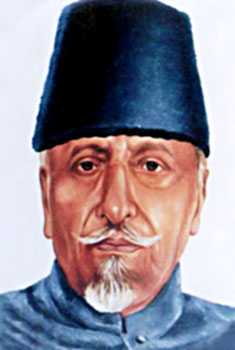 Indian Council of Cultural Relations (ICCR) is an autonomous body under the Ministry of External Affairs. The ICCR was established in 1950 by Maulana Abul Kalam Azad, independent India`s first education minister. The ICCR has its headquarters at New Delhi and a number of regional offices located in different parts of the country. The purpose behind setting up the ICCR was to establish and strengthen the cultural relations and exchanges between India and other countries. The Council helps formulate and implement policies pertaining to India`s external cultural relations, to foster mutual understanding between India and other countries and to promote cultural exchanges with other peoples. The ICCR encourages improvisation and experimentation, while it pays homage to the great classical and folk forms of India`s cultural expression.
Indian Council of Cultural Relations (ICCR) is an autonomous body under the Ministry of External Affairs. The ICCR was established in 1950 by Maulana Abul Kalam Azad, independent India`s first education minister. The ICCR has its headquarters at New Delhi and a number of regional offices located in different parts of the country. The purpose behind setting up the ICCR was to establish and strengthen the cultural relations and exchanges between India and other countries. The Council helps formulate and implement policies pertaining to India`s external cultural relations, to foster mutual understanding between India and other countries and to promote cultural exchanges with other peoples. The ICCR encourages improvisation and experimentation, while it pays homage to the great classical and folk forms of India`s cultural expression.
Its other functions include the welfare of foreign students studying in India. In June 1950 all work of scholarships for foreign students, which was being dealt with by the Ministry of Human Resources, was handed over to the Council. The Council promotes greater awareness and appreciation of Indian cultural heritage abroad and has established Indian cultural centres in some foreign countries. These centres maintain libraries and reading rooms, organise lectures, symposia, exhibitions, essay competitions, performance of dance and music, staging of plays, screening of films and publication of news bulletins. Indian music, dance and languages are taught at these centres by Indian teachers deputed by the Council. The Council is also in charge of organizing Maulana Abul Kalam Azad Memorial lectures and the conferring of Jawaharlal Nehru Award for international understanding. The Council has also an ambitious publications programme and brings out quarterly journals in English, French, Arabic, Hindi and Spanish languages. It also publishes books. It maintains a big library to help readers and research scholars.
Broadly speaking, the work of the Council can be divided into two broad categories- the work of the programs wing and the functions of the administration and education wing. The Programmes Wing deals with exchanges of visits by scholars, academicians, opinion-makers, artists and writers; facilitation of the organisation of and participation in seminars and symposia abroad; exchanges of visits by performing arts groups; exchanges of exhibitions; commissioning of busts and statues of Indian leaders for installation abroad; presentation abroad of informatics, audio-visual material, books on India and Indian musical instruments and active collaboration in the operations of some Foreign Cultural Centres in India.
The Administration and Education Wing works on administering of scholarship schemes for foreign students for studies in India; assisting organisation of and participation in seminars and symposia in India; maintaining the Council`s Regional Offices in India and its Cultural Centres abroad; establishing and maintaining Chairs and Professorships for Indian Studies in Universities abroad; administering the Jawaharlal Nehru Award for International Understanding; organising the Maulana Azad Memorial Lecture; conducting the Maulana Azad Essay Competition and publications.
The foregoing discussion thus highlights the broad outline and commitments of the ICCR.






